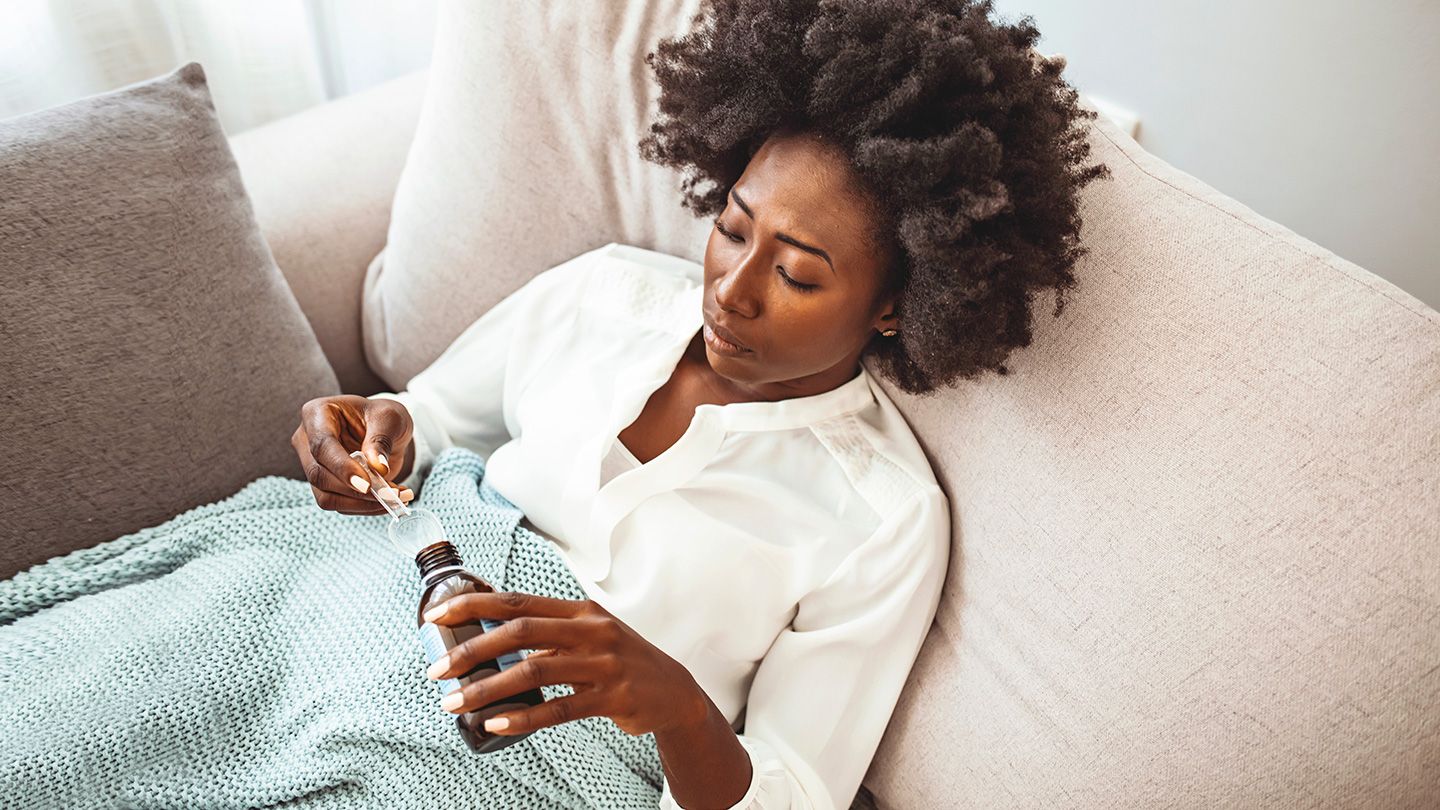The Debate Over Using Vicks VapoRub in the Bath
Vicks VapoRub is a popular over-the-counter cough and cold remedy that has been around for over 100 years. The active ingredients in Vicks include camphor, eucalyptus oil, and menthol, which provide relief for cough, congestion, and minor aches and pains.
Many people choose to add Vicks VapoRub to hot bath water, with the intent of allowing the medicinal vapors to surround the body and provide cough and congestion relief. However, there is some debate over whether this is an appropriate and safe use of the product.
The Potential Benefits of Using Vicks in the Bath
There are a few proposed benefits of adding Vicks VapoRub to a hot bath:
- The steam from the hot bath may help loosen mucus and clear congestion.
- Inhaling the medicinal vapors of camphor, eucalyptus oil, and menthol may reduce cough.
- The menthol may provide a cooling sensation which brings relief.
- The overall experience may be soothing and relaxing.
Anecdotally, many people report great success using Vicks in the bath and find it brings relief from cough, congestion, and other cold and flu symptoms. The heat and steam, combined with inhalation of the Vicks vapors, may provide multiple modes of relief simultaneously.
Concerns Over Using Vicks in the Bath
However, there are some concerns with adding Vicks VapoRub to hot bath water:
- It has not been approved for this method of use. Vicks provides instructions for topical application only.
- The camphor in Vicks can be toxic at high doses. Heating Vicks could increase the amount of camphor vapors released, raising safety concerns.
- Menthol and camphor absorb through the skin, so prolonged soaking may lead to higher than recommended exposure.
- Getting Vicks too near the eyes can cause irritation.
- The oils in Vicks can stain bathtubs and cause slickness.
Healthcare organizations like the FDA, Health Canada, the American Association of Poison Control Centers, and others advise against using Vicks in the bath, particularly in children due to their higher vulnerability.
Precautions to Take If Using Vicks in the Bath
If you choose to use Vicks VapoRub in the bath despite the warnings, here are some precautions to take:
- Use only a small amount - about 1/4 cup under very hot running water.
- Avoid getting Vicks near your eyes or face.
- Keep bathroom ventilated to prevent buildup of vapors.
- Don't bathe for more than 15 minutes.
- Rinse tub after to avoid slickness and staining.
- Be very cautious using Vicks in baths with children.
It's best to seek alternatives like using Vicks as directed with steam treatments or humidifiers, taking over-the-counter medications, drinking warm fluids, and using nasal saline sprays to relieve cough and congestion.
Examining the Safety of Vicks VapoRub Ingredients
The safety concerns over using Vicks VapoRub in the bath largely focus on its ingredients - camphor, eucalyptus oil, and menthol. Researchers have taken a closer look at how these components may impact health, especially with prolonged exposure or when heated and vaporized.
Camphor
Camphor is one of the main active ingredients in Vicks VapoRub. It produces a cooling, numbing effect on the skin and a strong medicinal aroma. Camphor has been used medicinally for centuries, but toxicology studies have revealed some concerns:
- Camphor is readily absorbed through mucous membranes and damaged skin.
- Ingesting small amounts of camphor can be toxic, causing seizures, confusion, and liver damage.
- Inhaling camphor worsens asthma symptoms.
- Camphor vapors are suspected to damage lung tissue with prolonged exposure.
- Applying camphor products to large areas of injured or damaged skin can cause poisoning.
These risks may be heightened when camphor is heated and vaporized in a hot bath, allowing larger absorption through the skin and inhalation into the lungs. This is why caution is advised using Vicks in baths.
Menthol
Menthol is another key ingredient in Vicks. It provides the cooling, refreshing sensation. Potential concerns with menthol include:
- Skin irritation, redness, and swelling with topical use, especially on sensitive skin.
- Toxic effects like dizziness, nausea, and shortness of breath if large amounts are ingested.
- Menthol applied topically can exacerbate asthma symptoms.
- Menthol's cooling effect on nerve endings may mask symptoms of damage or burns.
However, the risks of menthol are lower than camphor. Small amounts applied topically or inhaled from bath vapors are less likely to cause issues.
Eucalyptus Oil
Eucalyptus oil is commonly used in cough remedies like Vicks due to its reported anti-inflammatory effects. Potential safety concerns include:
- Topical eucalyptus can be irritating on sensitive skin.
- Ingesting eucalyptus oil can be highly toxic.
- Eucalyptus may lower blood sugar, so risks hypoglycemia if combined with diabetes meds.
- Breathing vapors may worsen asthma, though effects still debated.
Overall, eucalyptus oil likely carries lower risk than camphor when Vicks is used in the bath. But it's still a reminder to use caution and avoid getting excess eucalyptus exposure through damaged skin or inhalation.
Best Practices for Using Vicks Safely
While the safety of using Vicks VapoRub in the bath is debatable, it remains a popular home remedy. If you choose to use Vicks for cough and congestion relief, follow these best practices:
Use only as directed
Avoid adding Vicks to hot bath water. Stick to rubs on the chest, throat, and back as directed on the packaging. This limits absorption and vapor inhalation.
Use care around damaged skin and eyes
Be very careful applying Vicks anywhere near broken skin or open wounds, and avoid contact with eyes. The camphor and menthol can be readily absorbed and irritating.
Try child-friendly alternatives
Vicks makes a BabyRub formula without camphor that may be safer for infants and children than traditional VapoRub. There are also non-medicated bath additives to create a soothing soak.
See a doctor for severe congestion
While Vicks can help reduce mild cough and congestion, seek medical treatment if symptoms don't improve or worsen. Don't try to treat serious respiratory conditions at home without a doctor's guidance.
Watch out for side effects
Discontinue use of Vicks and call your doctor if you experience unexpected side effects like rashes, difficulty breathing, dizziness, or vomiting after use. You may require medical treatment.
Ask a pediatrician before use in children
Never give any medications to children without guidance from their pediatrician on proper dosing and safety. Young children are at higher risk of toxicity from camphor exposure.
When used carefully as directed, Vicks VapoRub can safely provide temporary relief from cough, congestion, and minor aches and pains. But be cautious using it in hot baths, steam treatments, or in any way not explicitly outlined on the product label. Speak to your doctor if you have any concerns over ingredients or experience an adverse reaction after use.
FAQs
Is it safe to use Vicks VapoRub in the bath?
No, using Vicks in the bath is not recommended. Vicks provides usage instructions for topical application only. Adding Vicks to hot bath water may cause you to inhale or absorb unsafe levels of camphor and menthol through your skin and lungs.
Why is camphor potentially unsafe in baths?
Camphor can be toxic when absorbed through the skin or inhaled in large amounts. The hot steam from a Vicks bath may release higher levels of camphor vapors, increasing your exposure beyond safe limits.
Can the menthol and eucalyptus in Vicks be risky?
Yes, menthol and eucalyptus also carry some risks if over-exposed. Menthol can be toxic in large ingestible doses. Eucalyptus may cause skin irritation. Both can exacerbate asthma with inhalation in certain individuals.
Are Vicks baths ever appropriate?
In general, no. However, if you choose to use Vicks in the bath, take extreme caution. Use only small amounts of Vicks in very hot running water. Avoid getting near eyes and damaged skin. Limit soak time to 15 minutes or less.
What are safer alternatives for congestion relief?
Try over-the-counter meds, nasal saline spray, humidifiers, hydration, and rest. See your doctor if symptoms don't improve or worsen. For children, use non-medicated bath soaks and consult a pediatrician before any medication.
Disclaimer: This article is for informational purposes only and does not constitute medical advice. Always consult with a healthcare professional before starting any new treatment regimen.
Related Coverage
Frigid winds and air can provoke painful, aching ear discomfort when working out in winter weather. Learn what causes sore ears post-exercise in the cold and how to prevent future earaches....
Alka-Seltzer and DayQuil both relieve common cold & flu aches, pains, and stuffiness. But they have key differences in ingredients, uses, side effects and interactions....
Learn what infections or conditions commonly trigger simultaneous earaches and sore throats. Discover key differences between viral and bacterial sources, along with home relief methods....
Honey & onions make an exceptional cough remedy when paired. Learn antioxidant-rich recipes like syrups, teas, poultices using their antibacterial and anti-inflammatory power....
Discover 8 natural remedies to help relieve flu symptoms like hydration, zinc, elderberry, vitamin C, chicken soup, humidifiers, saltwater gargles and herbal tea....
Can you safely take ibuprofen and DayQuil together? Experts warn combining them poses avoidable risks like liver toxicity, bleeding issues, and intensified side effects....
Soothe swollen, inflamed nasal and sinus passages using anti-inflammatory ginger, peppermint, licorice, chamomile teas. Clear your head naturally....
Alka-Seltzer and NyQuil both treat cold and flu but contain different active ingredients. Know when to use each for symptoms like cough, fever, body aches....
Does Tylenol or other medication break your fast? Get the facts on NSAIDs, supplements, prescription drugs and more during intermittent, alternate day and prolonged fasting....
Do cough drops break a fast? Get the facts on how common cough drop ingredients like sugar alcohols, flavorings, and coatings impact fasting along with natural remedies....







